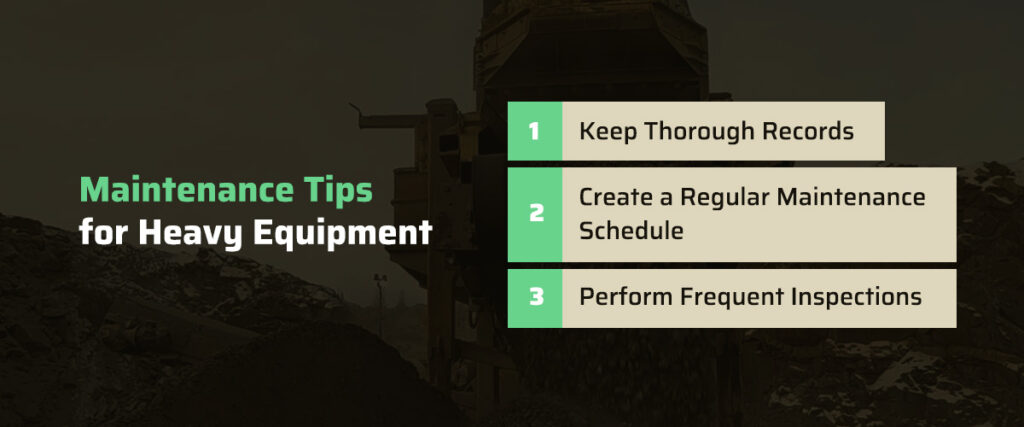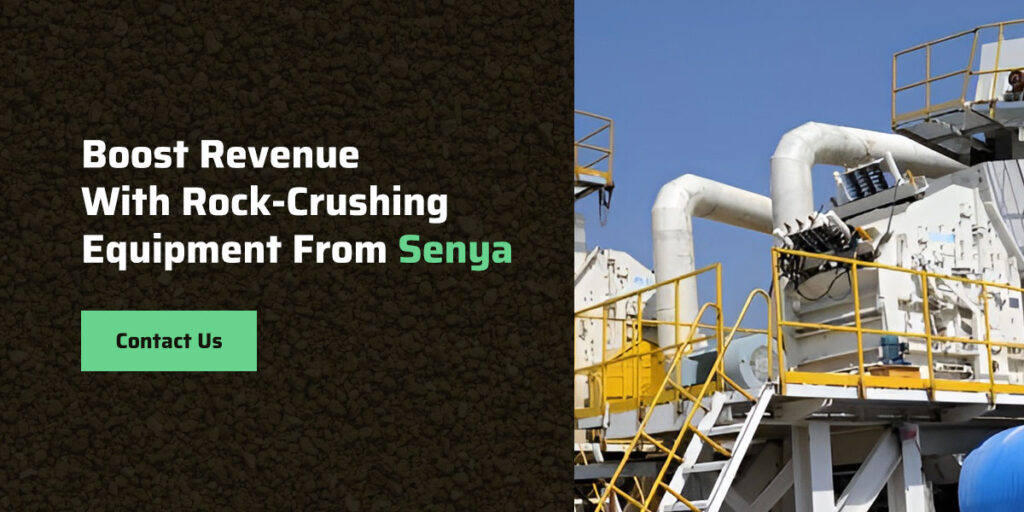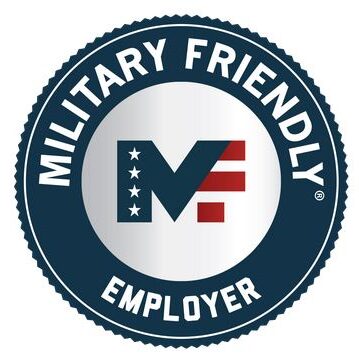
With the right heavy equipment, contractors can dramatically boost revenue. Rock-crushing equipment opens up a world of opportunities that can reduce costs and allow you to offer profitable services to other contractors. From on-site concrete crushing to aggregate processing, these opportunities often pay for the equipment quickly, helping you make more money and grow your business.
Popular Equipment Options for Different Industries
Many contractors use heavy equipment to expand their capabilities and earn money by processing aggregate materials on-site. Say you need to remove some concrete. With the right equipment, you can crush it down into aggregate and avoid paying to dispose of it. Then, you can either sell the aggregate or reuse it in the project, eliminating the cost of buying new aggregate. You might also offer your services to other contractors.
Processing equipment can provide huge returns on investment for many businesses. Some areas to consider offering your services in include construction, mining, recycling and demolition. Here are some popular equipment options that can help you make money:
MICRO Crushers
Rock and concrete crushers can break down large chunks of concrete and rock into smaller pieces, which you can sell as aggregate or use in other projects. Some contractors also crush concrete to make it easier to transport. Since aggregate contributes to many other construction materials, it’s often in high demand. You can crush concrete for virtually any project that uses this material, like construction and demolition.
MICRO crushing machines are portable and come in several styles, including jaw crushers, impact crushers and cone crushers. Most materials must undergo multiple stages of crushing, with different types of concrete crushers used to achieve specific effects.
If you only need to break down rock at the primary stage, a portable jaw crusher is a good choice — and you can pull it with a pickup truck. You may want to buy an impact crusher to produce rounded material or process asphalt. For secondary and tertiary crushing, a rugged cone crusher might be your best bet.
Portable Rock Crushing Plants
For an all-in-one option, consider a portable rock crusher plant you can take on-site. These plants have crushers for different stages of processing, along with screens and other supporting components.
You can transport rock and concrete crushing plants assembled or separately. Rock and concrete crushing plants work particularly well in projects where you will reuse the material — no transporting it off-site or buying the crushed material from someone else.
Aggregate or Mineral Processing Machinery
With aggregate prices consistently on the rise, processing machinery is a great way to take advantage of large quantities of raw materials, like those in quarries, mining and demolition projects. Some aggregates and minerals you can process include:
- Granite
- Basalt
- Limestone
- River pebbles
- Iron ore
- Steel slag
Through various types of equipment, robust aggregate processing lines turn large stone slabs into smaller, more uniform pieces or even crush them down to sand.
What is the best equipment for contractors to save on aggregate transportation costs?
On-site crushers transform waste concrete and rock into reusable aggregate, eliminating disposal fees and the need to purchase new materials.
Factors to Consider When Choosing Equipment to Make Money
A heavy equipment purchase is a great example of spending money to make money. Since this investment will determine how you’ll boost revenue, give the decision a little extra attention.
Consider the following factors before you buy:
- Equipment specifications: Of course, the equipment should meet your needs. Oversized, undersized or stationary machinery can limit your capabilities or increase costs, and some varieties simply can’t accommodate the work you want to do. For aggregate equipment, look at the type of material supported and the characteristics of the output. Determine what kind of work you want to do and whether the equipment offers the features and versatility you need.
- Costs of ownership: Heavy equipment comes with some costs of ownership, like maintenance, fuel and depreciation. Collect information on these expenses, and include them in your budget. Remember that proper care and maintenance are key to maximizing your investment.
- Licensing requirements: See if your state has any permit requirements for using equipment or transporting heavy loads. For example, some jurisdictions want you to have a permit for crushing and screening tasks, which would otherwise violate air quality rules. Since fines or usage limitations can restrict how much money you make, check on these elements before buying your machinery.

Maintenance Tips for Heavy Equipment
Proper maintenance is one of the best ways to keep your heavy equipment running smoothly. After all, if it breaks down, it can’t make you money. Here are a few general tips on heavy equipment maintenance for your next purchase:
- Keep Thorough Records
Good records help you know when your equipment might need service next and can help you avoid forgetting maintenance demands. If you sell the machinery when you’re done with it, thorough records can also help increase its value, as the next seller knows you took good care of it. - Create a Regular Maintenance Schedule
Follow the equipment manufacturer’s guidelines to create a schedule of maintenance tasks, like fluid or filter changes. Determine who will take responsibility for these tasks. - Perform Frequent Inspections
Have operators inspect the machinery for problems before every use and at regular intervals. Some inspections will be more in-depth than others, but they can help you spot problems before they get more expensive.
Technology Trends to Consider When Purchasing Equipment
Another aspect to consider is industry trends. You wouldn’t want to buy equipment for a service that’s becoming less popular. Fortunately, the equipment we’ve discussed has a bright future in several industries, but you’ll still want to consider trends like:
- Sustainability: ith evolving regulations and public scrutiny, sustainability efforts will largely impact many industries, especially those working with raw materials like mining. These organizations can get ahead with efficient, low-emissions equipment options and forward-thinking business plans that help tackle climate change. Also, rock crushers can more generally support sustainable construction by reusing materials.
- Nonresidential projects: The nonresidential sector should grow steadily in upcoming years, thanks to several large influxes of federal funding, like the Infrastructure Investment and Jobs Act (IIJA). You may come across larger jobs in sectors like commercial real estate, institutional construction, infrastructure and manufacturing
Dive into trends in your industry to see how they might impact the work your new equipment can help you with.
Boost Revenue With Rock-Crushing Equipment From Senya
Are you ready to make a smart investment in your business? Rock-crushing equipment offers a great way to make more money from construction and mining projects or by providing your services to other contractors. To maximize your income, you’ll need the right machinery. Senya Crushers is a pioneer in the aggregate industry with a specialty in helping small and midsize businesses improve profitability.
Explore our rock-crushing equipment online, or contact us to learn more about maximizing your profitability with Senya!









